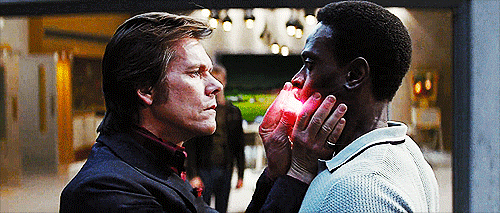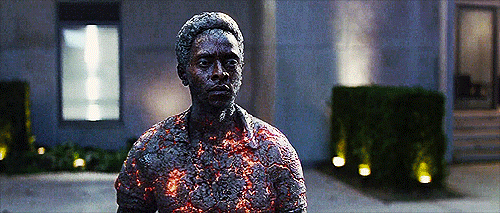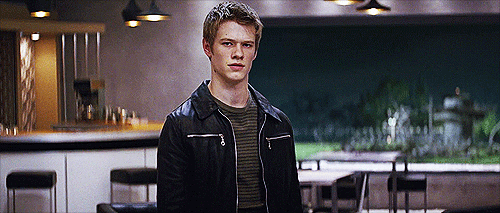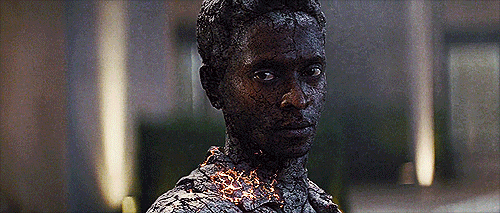Don't wanna be here? Send us removal request.
Photo
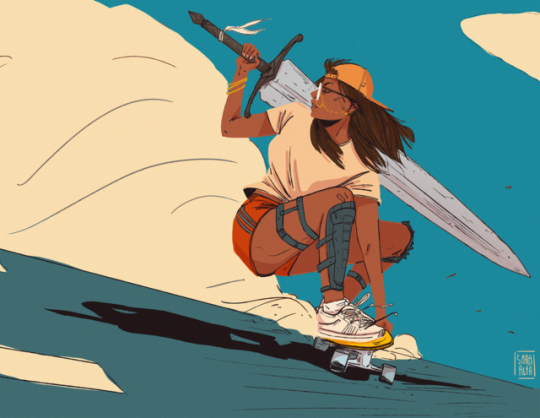
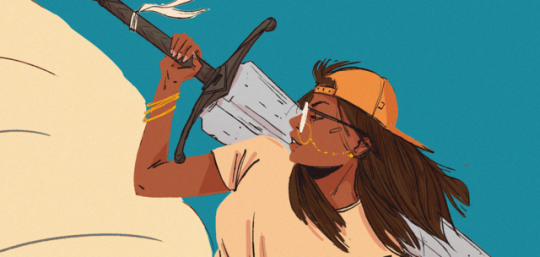
R A D I C A L
this is the most self indulgent doodle, but yo girls and big swords…..is a mood.
82K notes
·
View notes
Text
you can do this. stop sabotaging yourself and your dreams. there will be risks, there will be stress, but go on and actually pursue what you want to do. you will not regret having tried, all things considered. self-doubt can destroy so much of your life. don’t let it, please.
145K notes
·
View notes
Photo

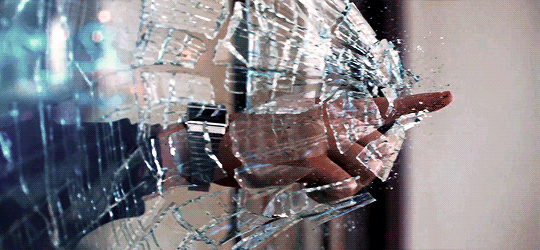
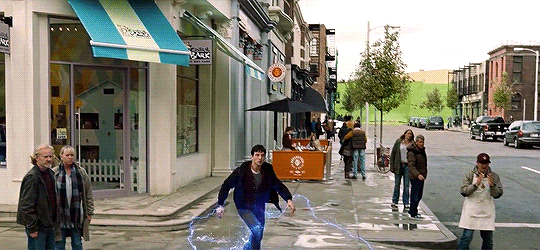
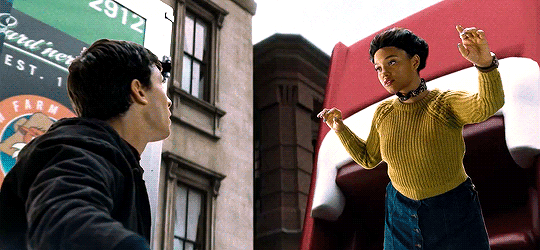
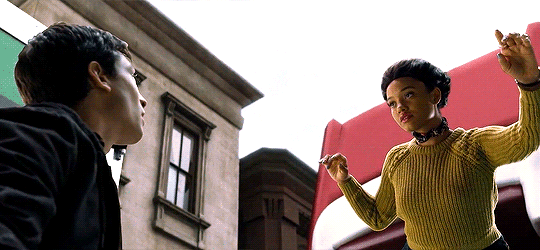
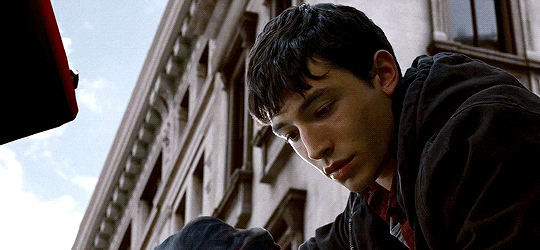
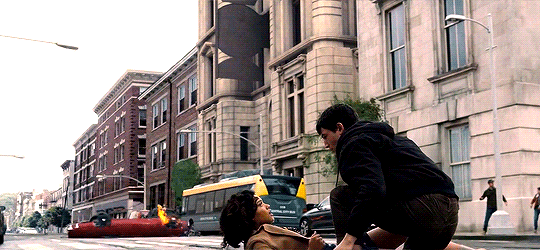
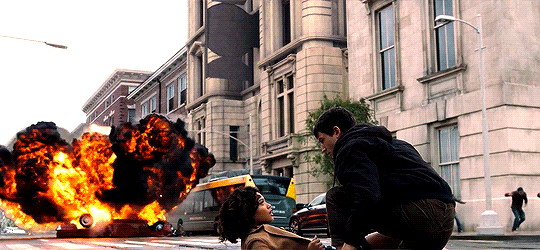
Deleted scene from Justice League featuring Kiersey Clemons as Iris West
21K notes
·
View notes
Text
Sleight (2017): Being young, gifted, and black...spoiler-filled analysis of random thoughts
As a film, Sleight is a typical story of the main character getting himself into trouble, and in the process, he puts himself and the people he loves in danger. He must grow into a hero, defeat the bad guys, and save the day all by the end of the film. Yeah, it’s that kind of story...but the characteristics of the protagonist and the environment he finds himself in that takes this film from being a typical story, and makes it memorable. This film won’t impress most film-goers with its story or action, but in an era where Black people are looking for representation that is complex and different from stereotypes, this film attempts to offer something new.

The plot
Jacob Latimore stars as Bo Wolfe, a young Black man living in Los Angeles who is attempting to take care of his pre-teen sister, Tina after the death of his mother (their father also died when Bo was a child). Bo is special though. He is highly intelligent - indicated by his former high school science teaching leaving a message as to why Bo didn't take the engineering scholarship. He is also highly talented - during his days, he hustles on the streets of LA doing magic tricks for tourists and other passerbys. Unfortunately, he isn’t using his intelligence to hustle at Boeing, and the street magic game doesn't pay the quickly growing bills. To survive, he's been selling drugs to white party-goers for the local drug dealer Angelo. Bo is charming; He’s not rough as compared to Angelo’s boys who, in a way, are Bo’s foils. Overall, Bo is just someone who had to grow up too fast, and make some suspect decisions, in order to be responsible for the other people in his life - while maintaining his childhood love for magic. Oh, and he has an electromagnet machine in his arm.
The drama of the story happens when Angelo starts to include Bo as part of his boys who do the “dirty work” of the drug business. Angelo wishes to stop the expansion of a potential drug dealer, and uses force after diplomacy. Bo is subject to be harassed by the rival gang, and eventually he is forced - by Angelo - to remove the hand of the offending drug dealer. As Bo realizes he has “gotten in over his head,” he attempts to cut his product with baby powder in order to double his profit. However, Angelo finds out, and gives Bo an unreasonable task to pay back the money he owes to Angelo, as well as an extra few thousand dollars. Bo, attempts this feat, but as plot demands, things do not fall into place; He takes his family to a friend’s house, as Angelo knows where he lives. As the deadline to appease Angelo this passes, Angelo kidnaps Bo’s sister in an attempt to draw Bo from hiding. Eventually, Bo has to take what is special about him [the electromagnet arm], in order to fight the bad guy. With the help of Mr. Granger, his former science teacher, (who is pretty chill about Bo having a potentially life-threatening device in his arm) he gets an upgrade to his cyborg arm, and goes to fight Angelo, “superhero style.” Bo does not kill them, but Angelo and his boys are definitely afraid of what they witnessed. Bo then completes the story, he saves his sister, runs away with his girlfriend, and lives happily ever after in San Diego.
Liberalism?
Director and Writer J.D. Dillard (with co-writer Alex Theurer) make Bo into a likeable youth struggling in a rough world; he is a character that doesn't display those stereotypical “thuggish” qualities that are often associated with a lower-economic status; and so his anxiety from trying to make ends meet is a significant emotional connection throughout the film. Bo charms the audience as well as make them desire for his well-being. Dillard states, “there's certainly no shortage of movies centering on young black boys falling into crime...our goal with Sleight was to show that circumstances can trap anyone, forcing them to take desperate measures out of self-preservation.”[1] This good people in bad situations cliché is similar to 2015’s Dope, in both the drama of the main character, as well as their being good kids trying to get out of situations created by their environment. While these films try to show that the myth that ALL people from lower-economic situations aren't individually bad/lazy/stupid/etc, that’s as far as their systemic argument goes. These stories still say that the environment is damaged, and that the only way to “help” is for the people with potential to leave these bad environments.
Magic?
As this film is innovating its own genre as it draws from aspects of other genres, it does not stray too far from being a traditional superhero-film. Yet the mixing of a story about crime, a story about magic, and a story about technological genius does not strengthen the simplicity of a hero-origin story, although Dillard assumed that it did:
“We (Dillard and Theurer) wanted to make something mixed genre with magic, crime, and a romantic and familial story. Very early on we realized if one of these pieces is too complicated, it muddies the whole movie. There came a point where we really cleaned up each major point of the story. That worked for us. It's not the most original crime, or coming-of-age story, but the most fun for us was blending these stories.”[2]

The sci-fi element was an unnecessary plot point, and how Bo did what he did could have been part of the mystical nature of who he was. The Iron Man element to the story is compelling, and has some interesting implications, however, Bo’s core beliefs revolve around magic. As the film takes time to tell the story of the magician who inspired Bo during his childhood, it would seem that the tone of the film would have the same effect and abide by the rules of magic – similar to the Prestige. The director does this thematic focus half-way when the camera keeps revisiting Bo at a desk in front of a Houdini poster, making a simile between the escape tricks which are a mainstay in the world of magic and the notions of escape this black youth desires from his bad situation. Without the technological piece, the plot already created a universe where it is easy to believe that the line between twirling rings in the air and stopping bullets isn’t that distant. Being an engineer isn’t a well-integrated or essential element of how Bo sees/interacts with his world. His technological intelligence becomes a means to an end, rather than an essential part of who he is – or was before his mother’s death. I would offer that to keep the science with the magic, that we should not have directly seen his struggles with his technology until he needs to level up at his science teacher’s house – then it would be the reveal that both allows us to see that he has been using technology this whole time, but it’s contained in the theme of magic.
Superhero?
Sleight wants to be a superhero film that subverts the superhero genre, similar to Chronicle and Unbreakable. It is about what happens when extraordinary abilities are put in the hands of someone ordinary, and how they figure out how best to use these powers in a mundane world. Sleight, embraces the speculative struggles of being Black and gifted, but then again, it falls into the trap of attempting to be too real.
This narrative flies in the face of the superhero genre - many reviewers and the marketers have characterized this film in the superhero genre as the tagline reads “Chronicle meets Iron Man,” which often the hero, where ever they call home, attempt to save - not only the person of the week - but the overall hopefulness of the location. However, Bo’s constant plan is to use his magic for the good of himself, his sister, and as the plot develops his girlfriend, Holly. While this motivation is valid for a protagonist, it is a typical driving force of black male protagonists in the “hood movie genre” as examples by films such as Fresh or Menace II Society, and arguably Dope. Some unfortunate but hopeful black youth finds himself in a situation in which he has to think his way out of and in the end, he learns a lesson (good or honest) about life. Yet, the magic tricks and science fiction draws feel almost trivial to the gritty drama of Bo’s life. There are many scenes of Bo doing magic in front of random people. The anxiety of his situation is paused for a moment, and from these moments, the audience is supposed to feel the joy of Bo showing off his talent. That the street magician is his true self, and the drug runner is a performance. While this dichotomy does become an issue of comparison between Bo’s multiple “shifts” to provide substance to our main character, Sleight makes it seem like Bo is an anomaly of his environment, rather than a normally occurring personality. Furthermore, as his does function as a diamond in the rough, the speculative aspects of the film – his cyborg arm – are used to transcend impoverishment, instead of being used as tool to empower himself and others. He rarely performs magic at home, for his sister, or anyone also in a similar situation. While his multifaceted nature is both a trait of being a magician, which parallels with being Black in America [code-switching being a necessary skills for many Black folx], the film doesn’t show where his personal allegiance lies - or could lay. Is he really for himself, for his family, for his new boo, or even for his magic? In watching this film, it does become difficult to center the dominant emotion we have for Bo. If this is a hood drama, can the viewer connect with Bo with sympathy or empathy? If this is a superhero movie, can the viewer connect with Bo with awe and desire? The emotional pull of the film feels muddied, as it attempts to make us both feel the need to save the main character, as well as BE the main character. Even if we suppose that the complex feeling of being both emphatic and awe-inspired is nuanced and relatable, it a feeling that again is drawn not from where the story takes us, but from the characteristics of the protagonist and the circumstance he finds himself in.

In this vein, Bo isn’t a “typical” superhero. He is similar to an Iron Man or Batman, and we can argue that superheroes can be self-made and man-made. Bo is human, and he uses his technical intelligence in order to build an incredible impossible device to “save the world” (although for him, his world may be very small and personal). Yet, every hero doesn’t have to be super and every Black person who has an interesting ability doesn’t have to be “super” either. They can just be human. Octavia Butler says it best…”I write about people who do extraordinary things.” In many of her works, Butler attempts to show the humanity of her characters in spite of the circumstances they are in. She often uses the abilities or circumstances to also emphasize the inhumanity of others. Bo installed an electromagnet in his arm, so that he can be unique as a magician. He can do something no one else can. Yet, it is how he approaches the circumstances that he finds himself in that really emphasizes his humanity. That someone would use his intelligence while in a sense sacrifice himself - his body – in order to find joy, and save others. Many of us don’t have to have a cyborg arm to do that.
Community?
For most of the film, Bo is trying to do everything “on his own.” Bo has increased anxiety about being under the thumb of Angelo, keeping the lights on, taking care of his sister, as well as providing space for his girlfriend fleeing domestic abuse, all the while trying to keep his dream of being a magician alive. We see that he sleeps, but I assume those were catnaps between jobs and other responsibilities. The scene where Tina burns the bacon is definitely indicative of his overworked life. The people in life that he is closest to -his sister, his girlfriend, and the family friend, Georgi – Bo only half-includes them in his plans, and spends most of the time by himself dealing with his troubles. He doesn’t tell anyone about his arm until he reveals it to his girlfriend, and he spends many days putting peroxide on the growing infection. He isn’t so proud that he won’t receive help, as Georgi often babysits Tina, Bo is grateful for the money Holly gives him to pay Angelo, and Mr. Granger helps upgrade his electromagnet. However, his isolation is shown as the way that Bo protects his family, although in reality, it is Bo who needs protecting.
I don’t assume that this taking on too much is not a realistic depiction, but it feels disingenuous to present a hero with no sidekick or backup or anything who is also a young black man. Where are Bo’s peer group friends, or random older folks who most likely would be keeping an eye on this young man and his sister? Story-wise it would be very ex-machina that some old black woman with a broom would come and give Angelo “a-taking to,” but at the same time, in the communities I’ve experienced, it’s not THAT far fetched.
Black?
Sleight wasn’t marketed as a Black film. It played at mostly independent theatres, and maybe a few mainstream ones. It premiered at Sundance which may have affected the how it was distributed. But, the film feels similar to others “alternative” Black films that reject stereotypical tropes such as Get Out, Moonlight, Dope, and Dear White People. While many of the critics position the film as similar to Chronicle, I guess for its extraordinary in an ordinary world feel, but
It also relates to films such as Meteor Man, Blank Man, and Brother from Another Planet. These Black SF films, while incorporating typical science fiction elements, also address African American specific social issues such as masculinity, community, family, and power dynamics between intracultural or external forces. Sleight shows another perspective of these issues, and how they could be solved via technology – or whatever the technology is a symbol for.
Two themes that are unique to the Black experience are his outfit and body.

In the final showdown with Angelo – the “a superhero is born” scene - “Bo wears a hoodie, ball cap, and a backpack.”[3] His backpack, which in the rest of the film was used for holding drugs, hides his battery pack, giving him the power to rip the fillings out of someone’s mouth (although fillings are magnetic!). His cap, although just a brand name, has an H on it, a subtle recognition that he is in his hero role at that moment. His hoodie is an iconography of black youth, as well as the response to the death of black people - a gesture to remember the physical and symbolic killing of Trayvon Martin. Like Mike Colter in the Netflix series Luke Cage, the hoodie becomes the both an iconography of black murder by police and resistance to such dehumanization. Colter remarked that the hoodie in Luke cage is an acknowledgement of “Trayvon Martin and people like him. People like Jordan Davis, a kid who was shot because of the perception that he was a danger. When you’re a Black man in a hoodie, all of a sudden you’re a criminal.”[4] In these speculative worlds, the hoodie is recodified to be the armor of scientifically-enhanced people. Instead of being a symbol of dehumanization, the hoodie instead becomes similar to a cape. When you wear it, it represents both adversity, morality, culture, and a political position. Luke and Bo are seen as dangerous Black men to mainstream white society, but they are saviors to their local communities. Also, the hoodie is a practical outfit, however else would a superhero exist within a lower-economic community, tights or a silver tiara wouldn’t get you very far.
With a Black SciFi lens and as the film ended with a teaser of Bo perfecting his cyborg arm, I definitely left the theater with questions drawn from contemporary issues. Will he find a livable-wage job without a college education? Will he go back to college? Will he attempt to grow his magic career? What does the future hold for a Black man who can stop bullets with a few moments of his fingers? He may have temporarily stopped one of the intra-societal problems, but the external racial issues still exist. What will he use his extraordinary abilities for? Does he still have to mutilate his body?
“Anyone can learn a trick. But doing something that no one else is willing to do makes you a magician. I can do something no one else can” This statement is bold, as Bo, as a hero similar to Luke Cage, has to do something no one else can to find freedom - they have to subject their body to science. This calls back to the history of Black people and scientific experiments [Tuskegee Syphilis experiment, Holmesburg Prison experiments are two egregious examples].[5] The challenge in these new representations of African Americans is that to become a hero, Black men almost embrace the repercussions of enslavement –the black body is a machine, a machine that can be enhanced to work even hard for others benefit. Yet, this script is flipped in both of these stories. These characters, although they were exposed to a skin hardening bioengineered agent or put an electromagnet in their arm, are working for the betterment of themselves and their community.
And to top it off, Bo, unlike Cage, did it to himself. It is a bodily sacrifice, but with the benefit that he made the choice as to what he was going to become, and how it would manifest. Bo is both the science experiment, and the scientist... he has more agency over his powers than most of the Black characters in the Marvel Cinematic Universe who have to hunt down some white man to give them upgrades or maintenance (Luke Cage, WarMachine, & Falcon don’t know much about how their tech work, although they are the primary users of it).
Unfortunately, and fortunately, the ideal black hero - science fiction - or superhero - has to be more powerful and intelligent than any human else to overcome the representational damage that has come before him.
-JW
[1] Truitt, Brian. "Here's why 'Sleight' star Jacob Latimore is the black superhero we need now." USA Today. April 26, 2017. Accessed July 31, 2017. https://www.usatoday.com/story/life/entertainthis/2017/04/26/five-reasons-why-sleight-star-jacob-latimore-is-the-black-superhero-we-need-now/100889332/.
[2] Bennett, Tara. "Exclusive: director J.D. Dillard reveals how Star Wars and Bad Robot inspired Sleight." Syfy. May 05, 2017. Accessed July 31, 2017. http://www.syfy.com/syfywire/sleight-director-jd-dillard-interview.
[3] Truitt
[4] Ostroff, Joshua. "Marvel's Luke Cage Is The Bulletproof Black Superhero We Need Right Now." HuffPost Canada. September 30, 2016. Accessed August 02, 2017. http://www.huffingtonpost.ca/2016/09/29/marvel-luke-cage_n_12202516.html.
[5] Washington, Harriet. Medical Apartheid The Dark History of Medical Experimentation on Black Americans from Colonial Times to the Present. Paw Prints, 2010.
3 notes
·
View notes
Quote
community must not mean a shedding of our differences nor the pathetic presence that these differences do not exist…
audre lorde (via 24kblk)
40 notes
·
View notes
Photo

The Black Scholar is proud to announce the release of “Black Code,” by guest editors Jessica Marie Johnson and Mark Anthony Neal. Johnson and Neal have assembled a collective of digital soothsayers working on the margins of Black Studies, Afrofuturism, radical media, and the digital humanities. Black Code Studies is queer, femme, fugitive, and radical; as praxis and methodology, it waxes insurgent when the need arises. And in this moment, we are in need of Black digital insurgency, one attuned to racial scripts of the past even as it looks to future modes of Black thought and cultural production for inspiration. Barely scratching the surface, this issue welcomes new work and celebrates a Black digital fugitivity that has been present since the beginning of the internet. Our contributors include Alexis Pauline Gumbs, Lauren Cramer, Alessandra Raengo, Tara L. Conley, Ashleigh Wade, Aleia Brown, Joshua Crutchfield, Megan Driscoll, Ahmad Greene-Hayes, and Joy James, with an introduction from Jessica Marie Johnson and Mark Anthony Neal,
with cover art from John Jennings celebrating Octavia Butler’s iconic novel, Wild Seed. For a limited time, download and read the introduction, “Wild Seed in the Machine,” and “Black Scholars Matter: #BlkTwitterstorians Building a Digital Community” by Aleia M. Brown & Joshua Crutchfield
, for free. To receive both print and digital versions of this issue, subscribe to Volume 47. When you subscribe to Volume 47, you will also receive “After Madiba: Black Studies in South Africa,” “Black Experimental Poetics,” and our final issue of 2017
which includes "Notions of Blackness in the Context of HIV/AIDS Disparities and Research" by Chandra L. Ford, "Lerone Bennett, Jr: A Life in Popular Black History" by E. James West, "Black on Black Love: Black Lesbian and Bisexual Women, Marriage, and Symbolic Meaning" by Siobhan Brooks, and "August Wilson and American Theater: An Interview with Frank Rich" by Nathaniel G. Nesmith.
6 notes
·
View notes
Photo

Black Speculative Arts movement aka BsaM, is an annual Afrofuturism, black comics, and arts convention held at multiple colleges and universities throughout the United States. Our main annual convention, co-founded by associate professor and chair of the Humanities department at Harris-Stowe State University, Reynaldo Anderson, and founder of Midwest Ethnic Convention for Comics and Arts - MECCA, Maia Crown Williams, will include vending from a vast amount of comics, art, and artisan creators and vendors, live performances, a full international film festival via MECCAcon, seminars, classes, hand on workshops, plays, and much more. Students are also welcome to submit proposals to participate as well.
BSAM Philly is sponsored by Dr Molefi Kete Asante, MA, Ph.D., professor of African American Studies at Temple University, Amalgam Comics, Black Tribbles, and Atomic City Comics. For tix:: BSAMphilly2016.eventbrite.com —— 6th annual The AfroFuturist Affair Ball FRIDAY NIGHT PARTY w/ Black Tribbles MECCAcon 2016 #MECCAcon2016 International Film Festival ARTIST ALLEY/ VENDORS BOOK SIGNINGS w/ Amalgam Comics & Coffeehouse, Inc. and Atomic City Comics (both black owned comic shops) ** PANELS/WORKSHOPS/LECTURES include** BLACK SPECULATIVE ART panel w/ Dr Amber Johnson, Dr Reynaldo Johnson, Dr Toniesha L. Taylor AFROFUTURISM 2.0: THE NEXT WAVE panel w/ Dr Reynaldo Anderson, Dr Tonja Lawrence, Dr Lonny J Avi Brooks, Dr David Deluliis BLACK COMICS workshop w/ Tim Fielder THE ART OF STORYTELLING workshop w/ N Steven Harris CHARACTER DEVELOPMENT 101 workshop w/ Shawn Alleyne AFRICOLOGY panel w/ Jennifer Williams, Ama Mazama, + BLACK QUANTUM REALISM w/ Rasheedah Phillips & Damion Scott official I Am Black Sci-Fi panel w/ Maurice Waters + DARK POLITICS & THE OCCULT lecture w/ Andrew Rollins HIP HOP & ARTIVISM w/ Moor Mother and Sole Rebel #BACK2BLACK : ACCURACY vs ACCEPTANCE in Today’s Comics, moderated by comics creator/ filmmaker Tony Patrick BOOK READING/SIGNING w/ Sheree Renée Thomas THE LAST DAYS OF KARTIKA: OPUS live performance w/ Wi-Moto Nyoka and MORE!! Our events will be fully covered by Black Tribbles, Dark Matters, and Taji Mag!
If you are interested in moderating a panel, workshop, and/or lecture, the deadline is October 23rd. Afrofuturism and astro blackness have been practiced in our community for years, especially thru literature, visual arts, and music. Artists like Sun Ra, Octavia Butler, Basquiat, Fela Kuti, George Clinton, John Coltrane, Alice Coltrane, Samuel Delaney, Jimi Hendrix, Paschal B. Randolph, Toni Morrison, Amiri Baraka,Tananarive Due, and the ZULU NATION are excellent examples. Black Speculative Arts Movement is a loose umbrella term represented for different positions or basis of inquiry: Afrofuturism, Astro Blackness, Afro-Surrealism, Ethno Gothic, Black Digital Humanities, Black (Afro-future female or African Centered) Science Fiction, The Black Fantastic, Magical Realism, and The Esoteric. Although these positions may be incompatible in some instances they overlap around the term speculative and design; and interact around the nexus of technology and ethics. BsaM is a continuation of the historical behavior within the Veil to engage the ideas of Dubois, Wright, Everett and others to pierce the Color Line, the Color Curtain, and understand the Digital Divide in the face of the challenges of the 21st century. Links: http://BSAMphilly2016.eventbrite.com http://blackspeculativeartsmovement.wordpress.com https://www.facebook.com/events/1614789775501626/ https://www.facebook.com/blackspeculativeartsmovement http://MECCAcon.wordpress.com ——–
7 notes
·
View notes
Photo

12 things I’d like to see in the film Hidden Figures
The 2017 film Hidden Figures is by being directed by Theodore Melfi (known for St. Vincent) and the screenplay written by Allison Schroeder. It’s being adapted from the book of the same name, written by Margot Lee Shetterly and will be published later this year. It’s about the African American women who were called “computers.” They were mathematics who calculated flight trajectories and the like for NASA. As the federal government had some initiatives to end racial discrimination in employment, NASA began hired black women and men in positions other than janitor and seamstresses (although they still implemented the use of segregated facilities). These women helped make the space program successful, but their history is not often publicized. Making a motion picture of this film is groundbreaking, in that it is a story about African American women, who are very intelligent, at a white collar job, during the Civil Rights Movement - and it’s a drama. Hidden Figures will depict African American women in a different light than most films in cinematic history. It places them at the center of the story about technological progress that African Americans have not often been historically connected to.
As it is a significant film, I have a few things I’d like to see happen in the film itself:
1. Black women are protagonists and primary supporting cast.
Seems like the story will revolve around Katherine Johnson, being played by Taraji P. Henson. But it will include her interactions with two other Black women computers “Mary Jackson and Dorothy Vaughn” Mary Jackson alleged being played by Janelle Monae, and Dorothy Vaughn by Octavia Spencer. The rest of the film should be populated by their family, friends, and other African american people they may have interacted with, as well as their white female and male coworkers at NASA. 2. Math/Computer Science/Black women being smart This is about black women being intelligent, so I’d like to see them show it off. Clearly, it’s a movie so It would be boring if we just see them sitting at their desks working the whole time, but it could be some scenes of them at blackboards working out problems, throw in some technical jargon, show them as smart black women. I imagine some CG work with flashing numbers and the like (similar to A Beautiful Mind, or the Davinci Code), but it could just be a non-dialogue scene with an awesome score.
3. Complex characters beyond “I’m doing it for the race”
We have a lot of films about people overcoming racial oppression.. I feel like this will try to fit into that genre. That’s cool. But it tends to simplify the characters into having only 1 motivation for doing what they do, such as being role models for their race. I want this to be an important piece, but I’d also like to see them as Black women who had other interests, other obligations. How are they dealing with being computers within their community, how was their family life? How was their church life? How was their school life? Did they live complex experiences beyond breaking racial barriers?
4. NASA racial policies
a. I’m pretty sure they are going to show that NASA was segregated. Johnson, Vaughn, and a few others were known as the “West Area Computers“ because they were segregated into the West Area of Langley Research Center.
b. Other Black women and men who worked for NASA in varying careers. One particular lady, Beulah 'Boots' Barger was a seamstress for NASA from around 1944-1970. She was clearly around interacting with folks in some capacity. What about the other Black women and men who were building equipment...or the black women and men cooking in the cafeteria, cleaning floors. If people were segregated by race, wouldn't be realistic that their first colleagues would be people in other positions at NASA?
5. Intersectionality
They are Black WOMEN, and their race affected how people perceived their gender. Show tension/or a lack of tension of being both black and a women in this job. The Black women “computers” would have to challenge stereotypes of being a mammy, jezebel, or sapphire in both their workplace and in the streets.
6. Black cultural locations that aren’t church.
Yes, I know the Black southern experience is defined by church and Langley is in Virginia. But many of these women went to HBCUS, or the jookjoint, or the beauty parlor. So show some other arenas of black life that places these women in other areas where they aren’t just struggling at work or at home. (Apparently there are some pictures surf
7. Cameos by past and present African American women in NASA.
If Mae Jamison or Nichelle Nichols (who did alot to promote NASA jobs) gave a 1 liner to the main characters, that would be great fan-service.
8. More than just stoic women for the race
Show these women experiencing happy at moments in the film, not just at the end. Show the three protagonist having a good sisterhood moment. They may have just stayed up all-night solving a hard part of the equation, and Johnson has a Eureka moment, and they all celebrate together. That would add the complexity of their character, and lend some levity to a film that could just sit with the deepness of being about overcoming racial and gender intolerance.
9. Complex antagonists
a. This is probably a bit more controversial. If there are white antagonists, don’t make them down-right evil. They cant be Hilly Holbrook from The Help, who the audience is made to cheer that she ate shit pie. I dont deny that there were 100% evil folks around at that time, but this is an easy character to put in a film. What made racial discrimination during the Civil Rights era peculiar (as it is today) is that there are folks who are “just a little bit racist.” And these subtleties made it hard for Black people. So, in the film, If there is a “training” montage, I figure their teacher might be a white individual who doesn't believe these women can do it. But maybe let it be a bit more than that, maybe this individual is part of African American activism at the time, however they don’t think that black cant do “this kind of work.” they might even say a few micro-aggressions such as “how often do you wash your hair?” This would give a different challenge to the main characters, as well as depict white people as they are, privileged people who harbor both pity and hate for people of color, and their daily choices to “help,” “harm” or “ignore” has a huge impact on the ability for the US to end racial discrimination.
b. If there are white people, don’t make them down-right saints. They can’t be as understanding as Skeeter Phelan either. Segregation was real, people let it happen and no one said anything. Those quiet moments where people just “let” stuff happen, would present a better tension...show the black women walking across parking lots and grassy knolls to the back get to their entrance while their white “colleagues” can go right into the front door. And inside, one more sympathetic character can be like, “it’s a shame ya’ll have to go in the back,” and maybe someone can chime, “whatcha gonna do about it.” It can have an awkward silence afterward. That kind of scene will show the complacency of white people too.
10. Emphasize the protagonists
Although I said in #3 to lessen the “this is about the race” thing, make this a film about African American women, not interracial relationships. It may happen, sure. But I want to see their struggles and accomplishments. Hidden Figures should be a biographical story about Black women overcoming odds, and for today, the importance of their legacy isn’t just about “breaking down barriers” so that white people understand that African Americans are human, but that African American can see that in insurmountable odds, they accomplished great feats. They were part of moments in American history, and They represent the fulfillment of African American dreams.
11. The Social political Setting
This will probably happen in the film, but I’ll say it anyway...show other stuff that was happening at the time - Martin Luther King on the news, the bus boycott, SNCC, lynchings, waterhoses, anything. I don’t know if they are doing the 50s or the 60s period - I’m assuming the climax might be solving equations for either the launching of John Glenn’s orbit around the earth or the Apollo 11 mission to the moon; but there is alot of stuff that these women would have known about, and talked about. And, don’t just show it on the TV, and have people shake their heads at home like the Help did. Put it in the dialogue and make it a part of the drama -how did the Civil Rights Movement emotionally impact their work? What happened at Langley when MLK was murdered? Did it make the West Area Computers angry, depressed, righteous? Did it impact how other’s saw them? Did it affect the mood of NASA at the time?
12. A Good song
Lastly, If Janelle Monae is part of this, she should do some of the score. I’d settle for her doing 1 song that is catchy or deep, and sets the tone of the film. It’s the song we’d hear in the trailers, over some dramatic one-liners. Similar to Common and John Legend’s Glory for Ava Duvernay’s Selma.
250 notes
·
View notes
Text
Black girls, your magic is just the beginning
First, in light of the discussion of whether Black women should be magical or not, we have to take a moment to reflect on the power of words in this contemporary moment. Neologisms - new words and phrases - made into hashtags, spread like wildfire (for a time) and infect the public imagination with new ways of thinking about reality…yet, we, as black women, should have dialogue about whether these new self-categorizations, be it #carefreeblackgirl, #blackgirlmagic, etc, are not just repackaged problematic stereotypes with shiny exteriors Although the term may come from us, that does not mean that the term is safe, as the debate with n*gga has shown. We have to have these communal conversations to make sure that these terms are adding something of value to our interpretation of the Black experience; So, in short, I appreciate the public debate since it keeps us as the authorities of our own culture, and not a bunch of folks blindly jumping on bandwagons.
Now, #Blackgirlmagic has been bubbling in the internets for the last three years. It was created by CaShawn Thompson and exists as shorthand to acknowledge the contributions and success of Black women, and the beauty (inside and out) of being a Black woman. The hashtag is a term pregnant with history. It stands as a rejection of Black women’s invisibility in both the white cultural environment, as well as in our own patriarchy laden communities. It stands as a form of resistance against Black women’s humanity as Black women use it to publicly demonstrate the unique and amazing things about themselves and their sisters.
Yet, Linda Chavers has a knee-jerk reaction to the popularity of the phrase. She doesn’t want to be considered magical because those with multiple forms of privilege still do not see her humanity. Black women are missing, they are incarcerated, they are underemployed at higher rates when compared to other gender and racial groups. I agree with her that it may become a problem to be seen as magical in this climate for two reasons:
If ALL Black women are “magic,” or can tap into their magic reservoirs, then we can do the impossible without consequence too ourselves. We can be beautiful, successful, and flawless, and others will expect us to be so. When there is an overemphasis on Black women’s ability to do EVERYTHING and be AMAZING all day, every day, there is a chance that we leave ourselves the impossible task of attempting to fill the role of the infallible Black woman.
Individual Black women may fall silent when they aren’t expressing the lighter-side of the magic. Those of us who may be expressing #blackgirldarkmagic such as depression, anger, failure, and other complex emotions and issues that we have as humans may appear not fit into #blackgirlmagic. In the current environment of recognizing Black woman’s accomplishments and being, those other moments do not sound so “magical.”
In framing #blackgirlmagic this way, Chavers sees the hashtag to be just another method of putting Black women in unrealistic terms, just like the strong Black woman stereotype. #Blackgirlmagic is just another denial of Black women’s suffering.
However, I don’t think we are so black and white anymore about how we describe our being. I think we are in a moment where we are attempting to change the strict single categorical nature of what black womanhood is.
Chavers’ response comes from a different tactic of Black woman empowerment, where we acknowledge our struggle first and foremost and we make others see our struggle is valid. This way of demonstrating our humanity has been a powerful method in our history, especially since the early days of Black Feminism in the 1980s. There has been a long fight for Black woman to have to ability to show our scars - that we too bleed when we are hurt, that sometimes we need help. In those moments, Black women can heal from many avenues of trauma when we were able to express our pain without the expectation of someone saying that our show of ‘weakness’ is a rejection of our black womanhood.
On the other hand, Chavers’ logic only allows for people to exist at the extremes of a phenomena. She asserts that if Black women are magic, then they can’t be anything else. In the end of her article, she asks, were black women who were victims of white supremacy, “not magical enough?” This is not a valid question. It is here that Chavers shows that she only defines Black woman’s humanity by one’s show of struggle -that being a Black woman requires us to profess we are the mules of the world. I agree that these atrocities that are happening to us are horrible, and must be fought. However, I cannot accept that my humanity does not include moments (or years) of joy, pleasure, and high self-esteem.
There have so many instances over the last 5 years where Black people were made to show our pain publicly in great number. Yet, that iconic image of the downtrodden Black woman becomes a limitation as well. If the only way people will see the Black woman is during her times of pain, then we are again stuck with an unrealistic black womanhood that we have to embody or reject.
I believe, however, our tactic today has been to be more holistic in our presentation of Black womanhood. We are embracing all our emotions, although the popularity of one hashtag may led some to think otherwise. I think that as much as publicly acknowledging our pain is a demonstration of our humanity, being happy, proud, congratulatory, and in awe of ourselves and our sisters just as radical. Even moreso, our recognition that we can be carefree one day, magical another, strong one day, or in pain the next, is a step towards liberation. #Blackgirlmagic, in tandem with all other hashtags of black womanhood adds to our humanity because we are expressing ourselves as multifaceted beings…and that’s just fantastic.
2 notes
·
View notes
Link
0 notes
Photo

Shiro Meda meets outer space | Art by @ekushhhh. #addisababa #africanart #ethiopia #urbanafrica #cosmic #afrofuturism #dynamicafricablog
471 notes
·
View notes
Photo
Monáe recognizes the process of dehumanization that befalls black woman musicians and in response she “exploits the marketplace of meaning in the name of future justice” (English and Kim, 218). She actively participates in an industry that is founded on the consumption of black cultural forms segregated from their history of oppression , e.g., utilizing the imagery of a black female buttocks as the penultimate icon of black female sexuality, while casting aside the history of white entertainment that deemed the Black female buttock grotesque and primitive i.e., a physical indicator of the inferiority and debased sexual nature of African people. The black experience in the music industry is ‘refused visibility,’ therefore, the feature of a marketable blackness within musical products veils the history and culture of its producers. Consequently, this process simultaneously generates the means for its hacking, as it continues to rely on black people to produce disembodied blackness. Monáe uses this vulnerability to her advantage and employs the system of manufacturing consumable blackness as a transportation device that delivers her radical, alternative, and transformative black woman musician image, philosophy, and sound to her electric ladies and to those unprepared for her android testimony.

851 notes
·
View notes
Link
Android/Cyborg Love is Queer because you have the multifaceted nature of existing in a state of becoming (i.e. you construct your self, the way you interact with the world, the way the world engages you, and how you love) while others attempt to deconstruct and build you in their own images. They attempt to make you and your means of love illegal, immoral, and impossible. You are a constructed being - a cyborg - that is both self-made for your own well-being and created by others to reinforce their illusions of control. Your love is entrenched in potentiality that transgresses ‘standards’ and moves society to embrace the possibility, it is queer; it is prophetic; it is sankofic; it is futuristic.
2 notes
·
View notes










